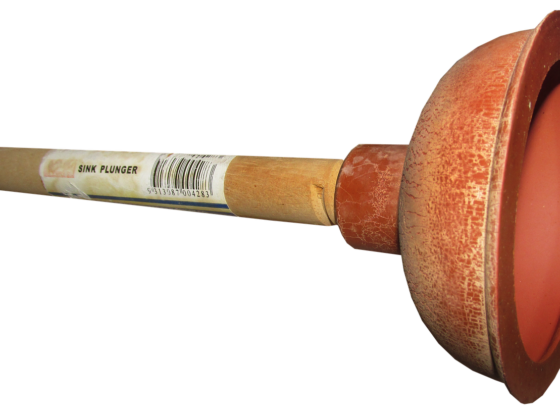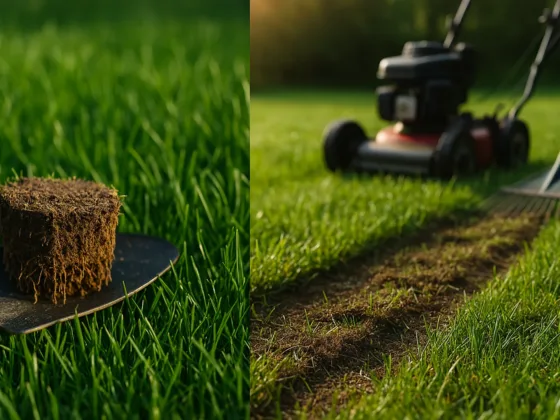Table of Contents Show
The daily ritual of cleansing oneself serves as a cornerstone of personal hygiene and health. It’s also a moment of solitary peace, a time for reflection, and in consideration of this debate: a decision point between taking a shower or soaking in a bath. As you stand at this crossroads, the question remains — which is the better choice? In a world where we are increasingly mindful of our environmental footprint, health, and convenience, the answer is not as straightforward as it might seem.
In this comprehensive analysis, we delve into the shower versus bath debate, examining each option’s benefits and drawbacks, the environmental impact, and providing guidance for hygiene enthusiasts, eco-conscious consumers, and homeowners. Let’s embark on this exploration to determine the most suitable option for your lifestyle.
What is the difference between a shower and a bath?
A shower, an efficient cascade of water, typically involves a standing position and is a quick and invigorating way to cleanse the body. On the other hand, a bath, a timeless submersion in water, lends itself to a longer cleansing experience and is often associated with relaxation and therapeutic benefits. The choice between the two often comes down to personal preference, available time, and the intent of the cleansing routine.
Benefits of Showers
Convenience and Hygiene
Showers are a staple of modern life for many, offering quick and practical cleansing. They are especially convenient for those leading active lifestyles or dealing with time constraints. The quick rinse that a shower offers adequately removes dirt and is often preferred for daily hygiene due to its efficiency.
Water Conservation
In an era where environmental concerns are paramount, showers take the lead in water conservation. A shower uses significantly less water than a bath of equivalent cleaning potential. With innovative features like low-flow showerheads and timed shower controls, one can conserve water without sacrificing cleanliness.
Quick Clean, Quick Save
Beyond water conservation, showers are also time-savers. In the dual battle against the clock and water waste, they emerge as the swifter, efficient victor. There’s a direct correlation between shorter water usage and utility bills, making showers the pragmatic choice for those aiming to save on time and costs.
Benefits of Baths
Relaxation and Therapeutic Benefits
On the flip side, a bath offers a sensorial escape, a time to unwind, and a moment to soothe both body and mind. Submerging in warm water can relieve muscle tension, alleviate stress, and even improve sleep. For those moments when you need a break from the bustle, a bath offers unparalleled comfort. Learn how to create a spa-like experience in your bathroom.
Nurturing Skin Health
Baths can also be a sanctuary for skin health. Soaking in water can hydrate the skin better than a quick shower, especially if you add natural oils and salts that provide nourishment and gentle exfoliation. For those with skin conditions, such as eczema, a bath can be a recommended part of therapeutic cleansing.
Therapeutic Substances
The addition of substances like bath salts, essential oils, and even natural ingredients can transform your bathing experience into an aromatherapeutic journey. These elements can enhance relaxation, soothe the senses, and provide tangible health benefits.
Environmental Impact
Water Usage Comparison
The environmental footprint of our daily activities is critical to sustaining the planet. Therefore, when choosing between a shower and a bath, understanding their water consumption is key. A shower typically uses significantly less water, especially if it’s well-timed and efficient. Conversely, a bath can use a substantial volume of water, which if not from sustainable sources, has environmental ramifications.
Eco-Friendly Practices
In an effort to be more environmentally responsible, incorporating eco-friendly practices into your bathing routine is something to consider. Reusing bath water for flushing toilets, opting for shared family baths, collecting water while showering to repurpose, and even rainwater harvesting are viable eco-friendly options.
Water-Saving Tips
For shower enthusiasts keen on both water conservation and minimizing their household expenditure, several water-saving tips can be utilized. Techniques such as installing low-flow showerheads, shorter shower durations, and turning off the water while soaping up can make a substantial difference in the long run.
Considerations for Hygiene Enthusiasts
Effectiveness and Cleanliness
A common concern in the shower versus bath debate is which offers the most effective clean. For the majority of daily hygiene needs, a well-constructed shower routine is generally effective. However, particularly soiled areas or individuals may require the extra elbow grease and soaking power that a bath can provide.
Skin Health
In the quest for radiant and healthy skin, the cleansing method plays a significant role. Showers, especially in hot water or with harsh soaps, can strip the skin of its natural oils, leading to dryness. While baths, particularly with added moisturizing elements, can be a gentler approach to cleansing that supports skin health.
Personal Hygiene Choice
Ultimately, the decision between a shower and a bath depends on individual skin type, living conditions, and personal preferences. Some may find a well-balanced combination of the two to be the perfect choice, adapting their routine to suit daily needs and seasonal changes.
Eco-Conscious Consumers’ Perspective
Sustainable Practices
For the environmentally focused individual, the choice between bath and shower often tilts towards practices that minimize water usage and waste. It’s about integrating sustainability into your hygiene regimen through conscious decision-making and responsible water management.
Conserving Water in Your Routine
Simple adjustments can lead to significant water savings. Recycled bath water, timed showers, and the use of greener bathing products are effective strategies for reducing your environmental impact. Consideration of alternative bathing solutions, such as wet rooms, which are designed to efficiently use water, can align hygiene practices with eco-conscious ideals.
The Bigger Picture
Environmental stewardship extends beyond the bathroom. It encompasses a range of lifestyle choices, from the products you use to the systems you have in place to responsibly handle water. By adopting a comprehensive approach to water conservation, you can contribute to a healthier planet.
Homeowner’s Dilemma
Space and Infrastructure
The decision between a shower and a bath can often be influenced by the practicalities of space and existing home infrastructure. Showers are space-efficient and suitable for small or shared bathrooms. They also come in a variety of designs, from standard showerheads to luxurious multi-jet systems, to fit different household needs.
Renovation Options
Homeowners considering a switch from a bath to a shower or vice versa have the option to renovate their bathrooms accordingly. A shower-bath combo can present a middle ground for those who don’t want to sacrifice either option. Renovations can be an opportunity to not only revamp your bathing area for improved functionality but also to enhance eco-friendly features.
Personalization and Long-Term Considerations
As a homeowner, you have the freedom to tailor your bathroom setup to match your lifestyle and personal ethics. Long-term considerations, such as resale value, energy efficiency, and your own comfort, should guide these decisions. The durability and aesthetic appeal of your chosen bathing method blend with your everyday living and can even become a selling point for your property.
Conclusion
The shower versus bath debate is a personal and multifaceted one. It hinges on lifestyle, preferences, and the individual’s commitment to personal health and environmental well-being. Both options present their own set of advantages and applications.
In the end, the best choice is the one that balances your need for cleanliness, relaxation, efficiency, and the preservation of our planet’s resources. By gaining a deeper understanding of the implications of your chosen bathing method and embracing eco-friendly practices, you can make a more informed decision that not only meets your immediate needs but also contributes to a more sustainable world.
Embrace your unique grooming routine, and take steps to ensure it aligns with the values you hold. Whether you find solace in a fragrant bath laden with petals or revel in the brisk refreshment of a morning shower, remember that every droplet counts towards a greater purpose.
Shower vs Bath FAQs
On average, a full bath can use approximately 80 liters of water, while a typical shower of about 8 minutes with a non-water-saving showerhead can use nearly 62 liters. However, if a water-saving showerhead is used, this can drastically reduce the water used to as little as 32 liters for the same duration. It’s worth noting that taking shorter showers or installing an eco-friendly bath can lead to further water conservation.
The cost-effectiveness of running a bath versus having a shower depends largely on your local water and energy rates, as well as your habits and the efficiency of your fixtures. A shower typically uses less water than a bath, meaning that if you are charged per unit of water used, a shower would often be cheaper. Moreover, if you use an electric shower that heats up water as needed, it may be more energy-efficient compared to heating a large volume of water for a bath in a hot water tank, potentially offering additional cost savings. However, individual circumstances vary; it pays to consider both your environmental impact and utility expenses when choosing between the two.
The frequency of showering is a personal choice that can be influenced by one’s daily activities, cultural norms, skin type, and personal preference. However, dermatologists generally suggest that showering several times a week is sufficient for most people to maintain good hygiene. Over-showering can strip the skin of its natural oils, leading to dryness and irritation. It is important to listen to your body and adjust your showering routine to what feels right for your skin and lifestyle.










